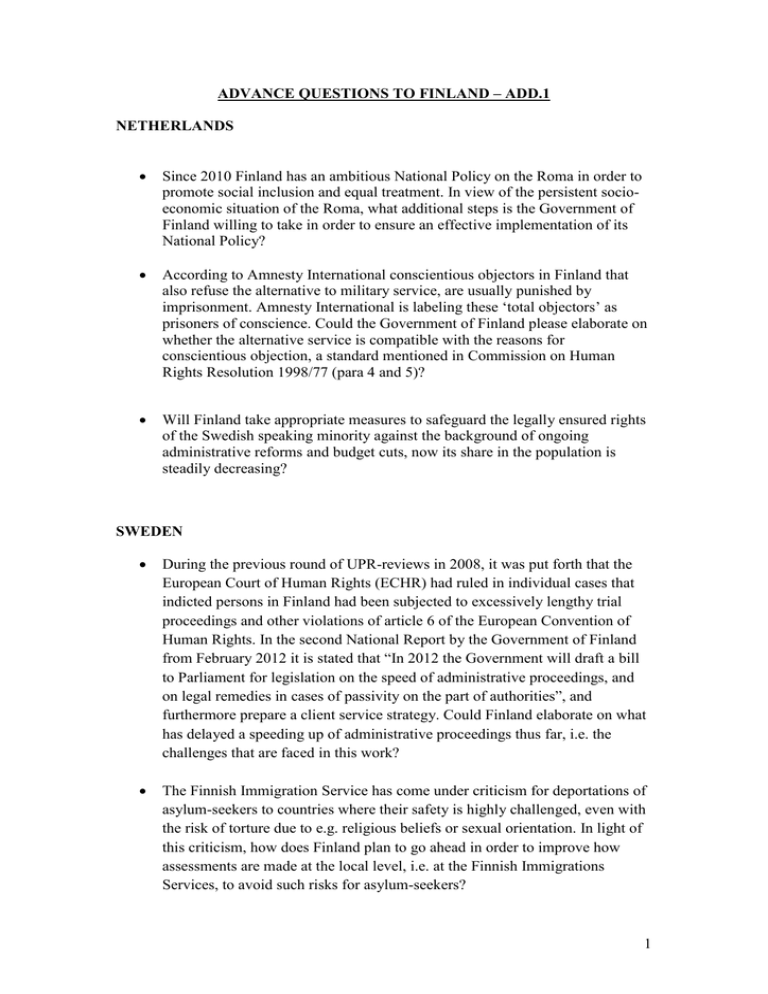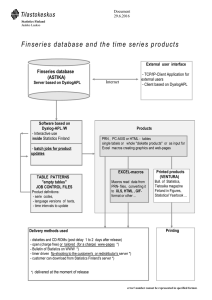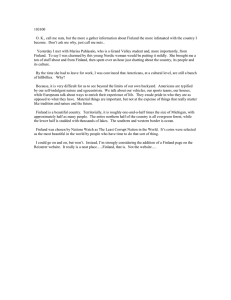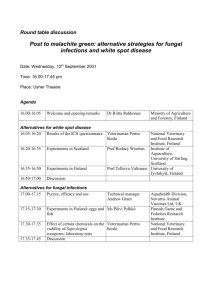Since 2010 Finland has an ambitious National Policy on the... promote social inclusion and equal treatment. In view of the... ADVANCE QUESTIONS TO FINLAND – ADD.1
advertisement

ADVANCE QUESTIONS TO FINLAND – ADD.1 NETHERLANDS Since 2010 Finland has an ambitious National Policy on the Roma in order to promote social inclusion and equal treatment. In view of the persistent socioeconomic situation of the Roma, what additional steps is the Government of Finland willing to take in order to ensure an effective implementation of its National Policy? According to Amnesty International conscientious objectors in Finland that also refuse the alternative to military service, are usually punished by imprisonment. Amnesty International is labeling these ‘total objectors’ as prisoners of conscience. Could the Government of Finland please elaborate on whether the alternative service is compatible with the reasons for conscientious objection, a standard mentioned in Commission on Human Rights Resolution 1998/77 (para 4 and 5)? Will Finland take appropriate measures to safeguard the legally ensured rights of the Swedish speaking minority against the background of ongoing administrative reforms and budget cuts, now its share in the population is steadily decreasing? SWEDEN During the previous round of UPR-reviews in 2008, it was put forth that the European Court of Human Rights (ECHR) had ruled in individual cases that indicted persons in Finland had been subjected to excessively lengthy trial proceedings and other violations of article 6 of the European Convention of Human Rights. In the second National Report by the Government of Finland from February 2012 it is stated that “In 2012 the Government will draft a bill to Parliament for legislation on the speed of administrative proceedings, and on legal remedies in cases of passivity on the part of authorities”, and furthermore prepare a client service strategy. Could Finland elaborate on what has delayed a speeding up of administrative proceedings thus far, i.e. the challenges that are faced in this work? The Finnish Immigration Service has come under criticism for deportations of asylum-seekers to countries where their safety is highly challenged, even with the risk of torture due to e.g. religious beliefs or sexual orientation. In light of this criticism, how does Finland plan to go ahead in order to improve how assessments are made at the local level, i.e. at the Finnish Immigrations Services, to avoid such risks for asylum-seekers? 1






